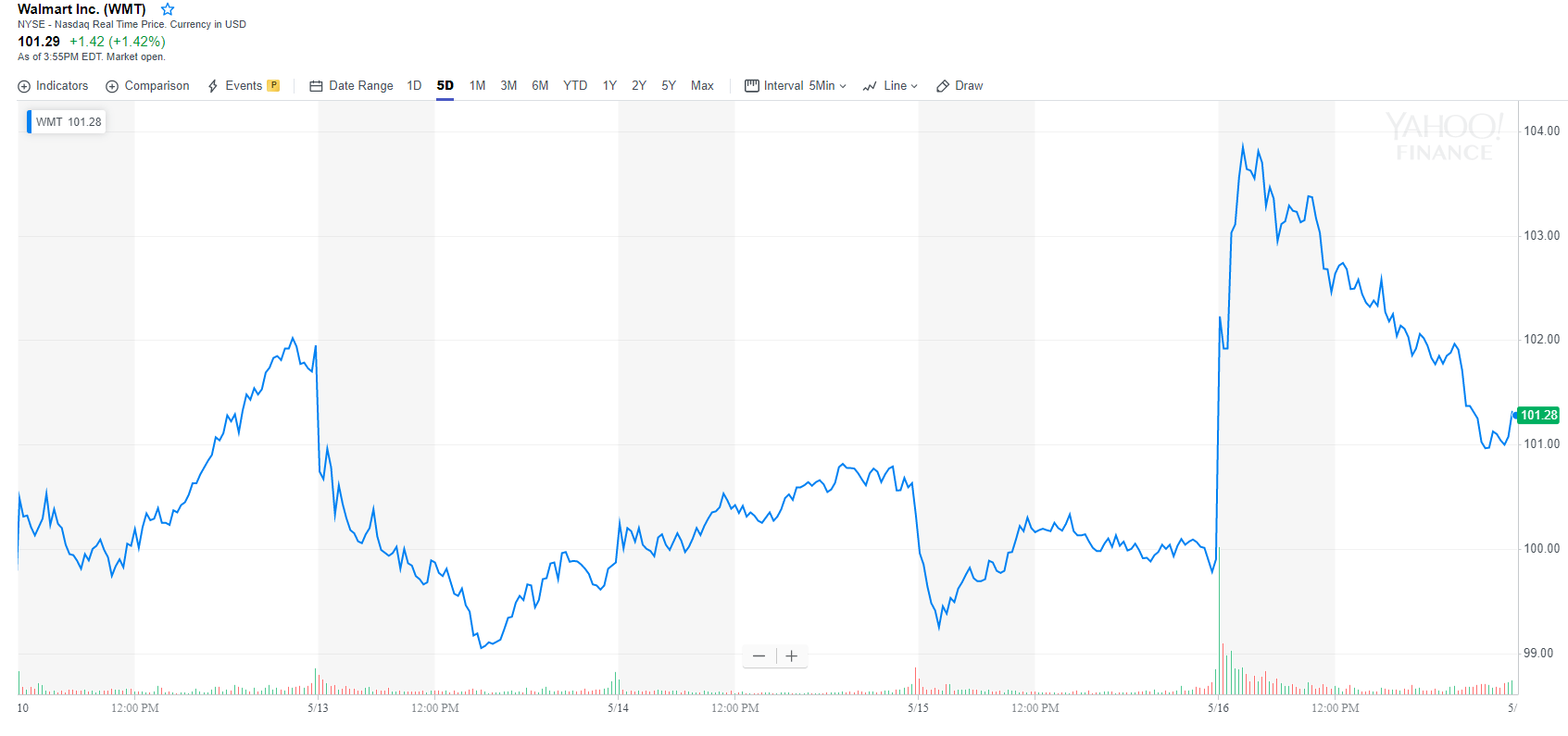Walmart Raises Prices amid Trade War, Should Focus on American Made

Walmart should use the trade war as an opportunity to rely on local factories and manufacturers. | Source: Shutterstock
By CCN.com: The trade war between the United States and China is on, and some of the country’s biggest retailers are starting to feel the burn. The latest victim of Trump’s tariffs is Walmart, which says customers can expect price increases on some of its stores’ most prominent items thanks to tax hikes on products imported from China. The retailer reportedly stated that it would do everything in its power to “keep prices low,” but customers should expect to pay more over the coming weeks.
Without China in the Picture, Americans Can Expect to Pay More
While the statement doesn’t mention which specific items will go up, executives are reportedly working with product suppliers to try and spread costs over multiple items so customers experience less financial strain on certain products.
https://www.youtube.com/watch?v=75gAQc_bGKU
Walmart Should Focus on American-Made Products
Despite its size, Walmart is a company that stands to be less affected by these tariffs than other retailers given that most of its business comes from grocery-related sales. Most of the fresh produce and other food items offered by Walmart stores are not imported and are likely to remain unaffected.
Meanwhile, big-box retailers like Walmart should look at a situation like this as an opportunity to change and potentially focus more on American-made products. Walmart, unfortunately, has been slow to react. The company says that approximately 26% of its items will still be brought in from China-based factories and manufacturers. Thus, more than one-quarter of the retailer’s overall goods stand to be priced higher thanks to the tariffs.
This is small beans, however, compared to other retailers such as Target, which allegedly imports about 34% of its products from China. Other ventures, like Amazon, likely stand to lose out the most when it comes to America’s trade war with its counterpart in Asia.
In early 2017, it was estimated that more than 200,000 sellers on Amazon were based in China, and that number has increased heavily since then. It is also estimated that China’s stake in Amazon is somewhere around 25%, and China-based sales through Amazon more than doubled in the year 2015.
Adding insult to injury is the fact that many of the products sold through these Chinese companies are counterfeit or copied from items that are not easily patentable, and this presents something of a moral conundrum as well as an economic one. No doubt Trump’s trade war can limit the existence of such items; but if the battle goes all out, it can be argued that Amazon’s products may be hit the hardest, especially in the beginning.
Retailers Like Amazon May Have Bigger Bruises
Given present conditions, apparel, footwear, and travel goods companies could lose a lot from the tariffs. China accounts for approximately 41% of all apparel products in the U.S. It also represents more than 70% of all shoes and footwear and nearly 85% of all travel-related products.
Meanwhile, Macy’s already told customers that they can expect prices to spike on certain items thanks to new tariffs.
At press time, Walmart’s stock is up by slightly more than 2% on solid earnings, trading at nearly $102 per share.
